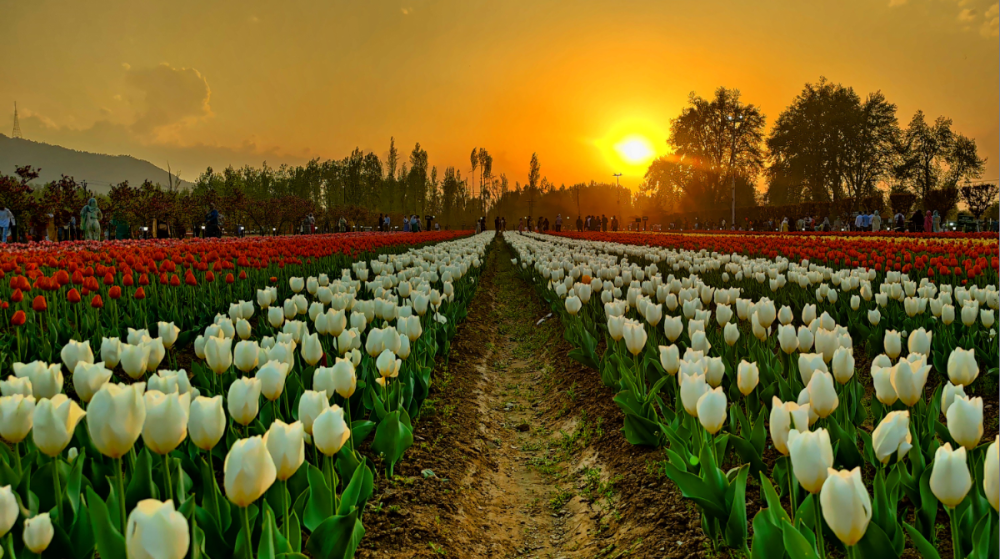

The Indira Gandhi Memorial Tulip Garden, previously known as Siraj Bagh, is a relatively new attraction in the tourism landscape of Srinagar, Kashmir. Established in 2007, it was an initiative to boost floriculture and tourism in the region. The garden sprawls over an area of about 30 hectares and is situated at the foothills of Zabarwan Range with an overview of Dal Lake.
This tulip garden was conceptualized with the aim of creating a spacious garden full of tulips, akin to the world-famous tulip gardens in the Netherlands. Today, it holds the distinction of being the largest tulip garden in Asia. The garden has been successful in attracting tourists from all over the world, becoming one of the most popular destinations in Srinagar.
The Tulip Festival marks the beginning of tourism season in Kashmir. It has turned out to be a key attraction for tourists, boosting the local economy. The garden's development comes under state tourism department initiatives, intended to extend the tourism season in the region. The festival usually commences in March or April, depending on the blooming of tulips, and lasts for about a month.
The sheer spectacle of millions of tulips blooming in unison is not only a celebration of colors but also an embodiment of the rich horticultural prowess of Kashmir. The garden cultivates a vast variety of tulips, which accentuates its unique standing in floriculture and eco-tourism circles.
Tourism is a significant part of Kashmir’s economy, and Tulip Garden is a strong pillar in that sector. Its annual Tulip Festival has become a major event on the tourist calendar, with increased footfall each year. This attraction has also aided in changing the narrative about Kashmir, highlighting its natural beauty and hospitality instead of its political turmoil.
With a myriad of colors blooming across this terraced garden, visitors not only enjoy the natural splendor but also contribute to the local handicrafts, hotel, and transport businesses. Additionally, the garden employs many locals, creating temporary but critical employment opportunities during the tourism season.
In recent years, the focus has been on sustainable tourism. The garden’s administration promotes eco-friendly practices to ensure that the natural beauty of the place is conserved. There is an emphasis on responsible travel and tourism which aligns with eco-friendly and sustainability goals.
Furthermore, there is a trend of incorporating immersive experiences. Visitors can enjoy Kashmiri folk music and cuisine within the Tulip Garden premises during the festival, allowing a deeper cultural immersion and engagement with the local traditions.
Looking forward, there is a continued effort to add more varieties of tulips and to extend the blooming period to attract more visitors. Plans to create additional facilities like cafes, souvenir shops, and photographic points are also considered to enhance the tourist experience.
There is an understanding that maintaining the health of the garden is paramount, which is why strategies for conservation and crowd management are constantly being revised to ensure the Tulip Garden remains a sustainable and enchanting destination for years to come.
The Tulip Garden in Srinagar, Kashmir represents a vibrant chapter in the tourism history of the region. It isn't just a destination; it's a phenomenon that celebrates the bounty of nature, amplifies the cultural richness, and stimulates the economic dynamics of Kashmir. As it continues to evolve, the Tulip Garden is poised to remain an iconic attraction, blooming with prospects and opportunities for travelers and locals alike.